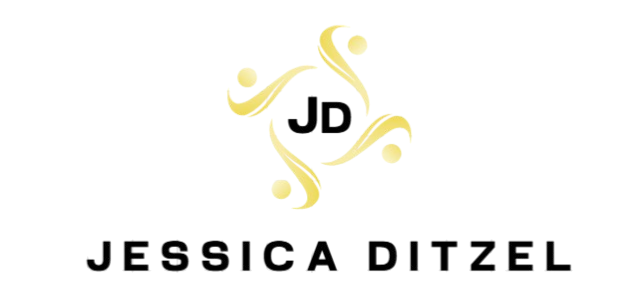What is Kukleion Athanaton Homer Works?
The phrase “Kukleion Athanaton” is a significant term in the context of Homer’s epic poems, often discussed in the realm of classical studies. This phrase, translating to “circle of immortals,” carries deep meaning in the exploration of ancient Greek literature. Homer, the legendary poet, uses such expressions to convey themes of divine intervention, immortality, and the relationship between gods and humans. Understanding Kukleion Athanaton is crucial for anyone delving into Homeric texts and ancient Greek culture.
The Significance of Kukleion Athanaton in Greek Mythology
Kukleion Athanaton Homer directly translates to the “circle of immortals,” referring to the gods and goddesses of ancient Greek mythology. In Homer’s works, the phrase represents the divine assembly of gods who observe, influence, and often control the fates of mortals. This concept is crucial as it underscores the belief that human lives were subject to the whims of these immortal beings, a recurring theme in Greek literature.
The Role of the Gods in Homer’s Epics
In both the Iliad and the Odyssey, Homer depicts gods as powerful entities who interfere in the lives of mortals. The Kukleion Athanaton can be seen as a metaphorical representation of their collective influence. The gods, from Zeus to Athena, play pivotal roles in the narrative, guiding or hindering human characters based on divine agendas. This divine circle is not just a physical assembly but a symbol of the gods’ eternal presence and their cyclical involvement in human affairs.
Immortality and the Divine in Homer’s Works
The concept of immortality, inherent in Kukleion Athanaton Homer, is another critical aspect of Homeric literature. The gods are eternal, unchanging, and ever-present, in stark contrast to the mortal heroes whose lives are fleeting. This juxtaposition highlights the inevitable human struggle against the forces of fate and the divine. Understanding this theme helps readers appreciate the depth of Homer’s portrayal of the human condition.
How Kukleion Athanaton Reflects Homeric Themes
Homer’s use of Kukleion Athanaton Homer is not just about the gods themselves but also reflects broader themes within his epics. The idea of an immortal circle resonates with concepts of fate, destiny, and the cyclic nature of life and death, all of which are central to Homeric narratives.
Fate and Destiny in the Iliad and the Odyssey
In Homer’s epics, fate is an unyielding force that even the gods respect. The Kukleion Athanaton Homer often watches over the unfolding of destiny, sometimes intervening but never fully altering what is preordained. This interplay between divine will and destiny is critical to the tragic elements in Homer’s stories, where heroes like Achilles and Odysseus must confront their fates despite divine influence.
The Cycle of Life and Death
The circle in Kukleion Athanaton Homer also symbolizes the cycle of life and death, a recurring motif in both the Iliad and the Odyssey. While the gods are immortal, humans are bound by mortality, and their stories often revolve around their efforts to achieve glory (kleos) that outlives them. Homer contrasts the eternal nature of the gods with the transient lives of humans, emphasizing the poignancy of mortal existence.
Kukleion Athanaton in Modern Interpretations of Homer
The phrase Kukleion Athanaton Homer has intrigued scholars and literary critics for centuries. Modern interpretations often focus on how this concept encapsulates the relationship between the divine and the mortal in Homeric literature. Contemporary analyses explore how this ancient idea has influenced modern storytelling, particularly in how divine intervention and the concept of fate are portrayed in literature and media.
Scholarly Perspectives on Kukleion Athanaton
Modern scholars interpret Kukleion Athanaton Homer as more than just a literal assembly of gods. It is seen as a symbolic representation of the ancient Greek worldview, where the divine is omnipresent and omnipotent. This perspective sheds light on the fatalistic elements of Homer’s works, where human actions are often seen as secondary to the will of the gods.
Influence on Modern Literature and Media
The themes encapsulated in Kukleion Athanaton Homer have permeated modern literature and film. Stories involving divine intervention, fate, and the struggle for immortality continue to resonate with audiences today. The cyclical nature of these themes can be seen in contemporary retellings of Greek myths, where the influence of the gods remains a central element.
Exploring Kukleion Athanaton in Other Ancient Texts
While Kukleion Athanaton Homer is prominent in Homer’s works, its implications can also be found in other ancient Greek texts. Writers like Hesiod and Pindar also reference similar ideas of divine assemblies and the role of immortals in human life, reinforcing the significance of this concept in Greek culture.
Hesiod’s Theogony and the Circle of Gods
In Hesiod’s Theogony, the genealogy of the gods is outlined, providing context to the Kukleion Athanaton Homer as a structured hierarchy of divine beings. Hesiod’s work complements Homer’s portrayal by offering a more detailed account of the origins and relationships among the gods, enriching our understanding of their influence on the mortal world.
Pindar’s Odes and the Immortals
Pindar’s odes often celebrate the deeds of athletes while invoking the favor of the gods. The concept of Kukleion Athanaton Homer is reflected in his frequent references to the gods as arbiters of human success and glory. Pindar’s work underscores the continued relevance of this divine circle in Greek thought and its impact on all aspects of life, from war to sports.
Conclusion: The Enduring Legacy of Kukleion Athanaton
The concept of Kukleion Athanaton Homer epics is more than just a literary device; it is a window into the ancient Greek understanding of the divine and its role in human affairs. Through the lens of this immortal circle, Homer explores profound themes of fate, mortality, and the cyclical nature of life and death. As we continue to study and reinterpret these works, Kukleion Athanaton Homer remains a critical element in understanding the richness of Homeric literature and its influence on Western thought.




